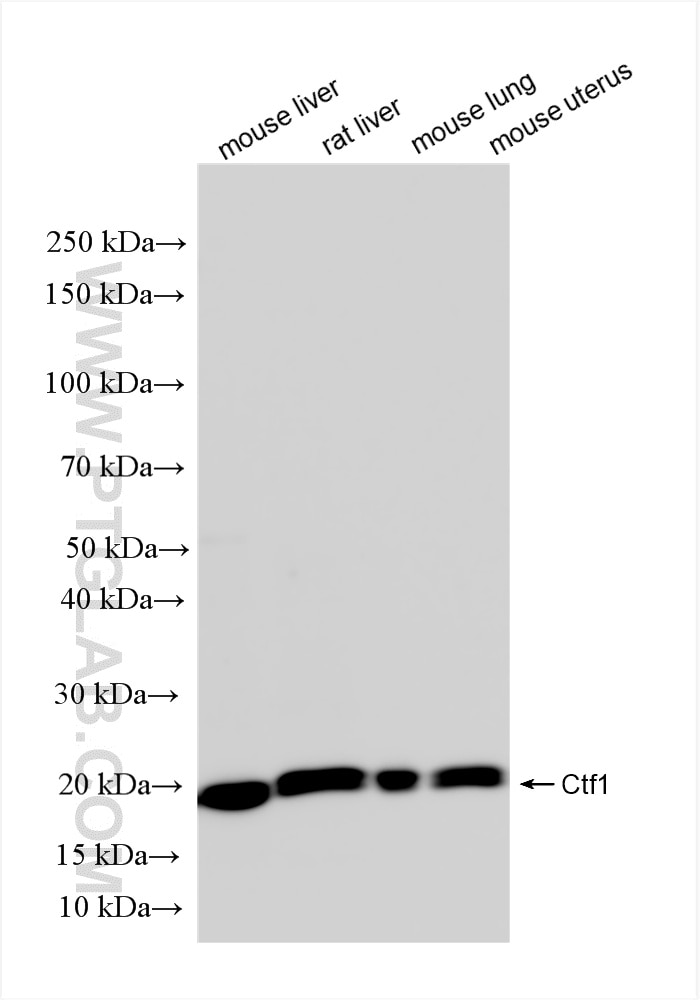Tested Applications
| Positive WB detected in | mouse liver tissue, rat liver tissue, mouse lung tissue, mouse uterus tissue |
Recommended dilution
| Application | Dilution |
|---|---|
| Western Blot (WB) | WB : 1:500-1:2000 |
| It is recommended that this reagent should be titrated in each testing system to obtain optimal results. | |
| Sample-dependent, Check data in validation data gallery. | |
Product Information
85828-4-RR targets Ctf1 in WB, ELISA applications and shows reactivity with mouse, rat samples.
| Tested Reactivity | mouse, rat |
| Host / Isotype | Rabbit / IgG |
| Class | Recombinant |
| Type | Antibody |
| Immunogen |
CatNo: Eg2867 Product name: Recombinant Mouse Ctf1 protein (rFc Tag) Source: mammalian cells-derived, V37 Tag: C-rFc Domain: 2-203 aa of NM_007795.1 Sequence: SQREGSLEDHQTDSSISFLPHLEAKIRQTHNLARLLTKYAEQLLEEYVQQQGEPFGLPGFSPPRLPLAGLSGPAPSHAGLPVSERLRQDAAALSVLPALLDAVRRRQAELNPRAPRLLRSLEDAARQVRALGAAVETVLAALGAAARGPGPEPVTVATLFTANSTAGIFSAKVLGFHVCGLYGEWVSRTEGDLGQLVPGGVA Predict reactive species |
| Full Name | cardiotrophin 1 |
| Calculated Molecular Weight | 22 kDa |
| Observed Molecular Weight | 22 kDa |
| GenBank Accession Number | NM_007795.1 |
| Gene Symbol | Ctf1 |
| Gene ID (NCBI) | 13019 |
| Conjugate | Unconjugated |
| Form | Liquid |
| Purification Method | Protein A purification |
| UNIPROT ID | Q60753 |
| Storage Buffer | PBS with 0.02% sodium azide and 50% glycerol, pH 7.3. |
| Storage Conditions | Store at -20°C. Stable for one year after shipment. Aliquoting is unnecessary for -20oC storage. 20ul sizes contain 0.1% BSA. |
Background Information
CTF1 (Cardiotrophin-1) is a member of the interleukin-6 (IL-6) family of cytokines. It is a secreted protein that induces cardiac myocyte hypertrophy in vitro and has been shown to bind and activate the IL-6ST/gp130 receptor. CTF1 plays a crucial role in various physiological and pathological processes, including cardiac function, metabolism, and cancer progression.
Protocols
| Product Specific Protocols | |
|---|---|
| WB protocol for Ctf1 antibody 85828-4-RR | Download protocol |
| Standard Protocols | |
|---|---|
| Click here to view our Standard Protocols |




